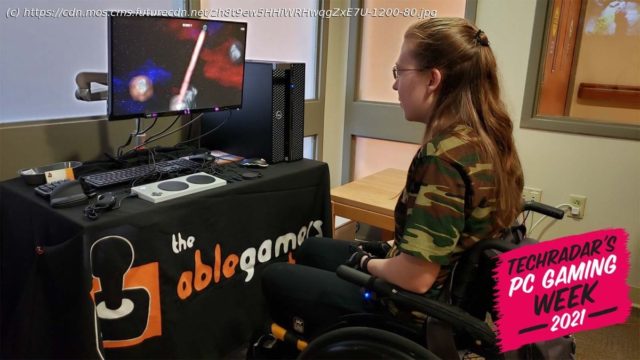Accessibility and inclusion in gaming have improved, but what resources are available to make it even better?
Accessibility in gaming has come a long way, but gaming’s still not near as progressive as it needs to be. Including disabled people can be a difficult task for developers, as disabilities can affect people in a multitude of ways and figuring out the right ways to support gamers with disabilities might seem like an impossible task. However, as we’ll see, there already exist good examples of “gaming accessibility done right”, and plenty of resources for developers who want to put more accessibility options into their games. Gaming is as important to disabled people as it is the able-bodied – arguably more so because disabled people are at a higher risk of social isolation. Gaming has natural value as entertainment, but it also has an important social aspect, through multiplayer and the communities that form around gaming and games. Disabilities can make it harder for people to share in these experiences, but there are ways they can join in. For people with mobility issues like muscular dystrophy, controlling a game using eye movement or adapted joysticks is a major step forward. A gamer with severe visual impairment can benefit from audio-only games like the new release The Vale: Shadow of the Crown. Accessibility matters and is more important than ever, so is it reasonable that, even now, games by major AAA companies still come out with barely any accessibility features at all? As Chris Cooke, co-founder of gaming organization Everyone-Games says, “What percentage of gamers play a game on ultra-hardcore mode? The disabled are easily a larger customer base, but I don’t see a mode for them as often in the settings!” Most frustrating for Chris is, “the times a big-budget game could easily have been made more accessible with a few tweaks, but they didn’t bother!” We’d be remiss not to touch on the ways games have been made more accessible, which we’ve seen with Microsoft’s Xbox Adaptive Controller that can be used on both Windows 10 PCs and Xbox consoles. Subtitles are now common, as are colorblind modes and enhanced closed captioning. VR gaming is also considered to be a real champion when it comes to accessible games, very suitable to many people with disabilities. Game developers like Naughty Dog, Volition, and others have made strides to improve accessibility as well, including more optional settings to better improve the gameplay experience of gamers with disabilities, including those with vision, hearing, and motor-coordination challenges.






